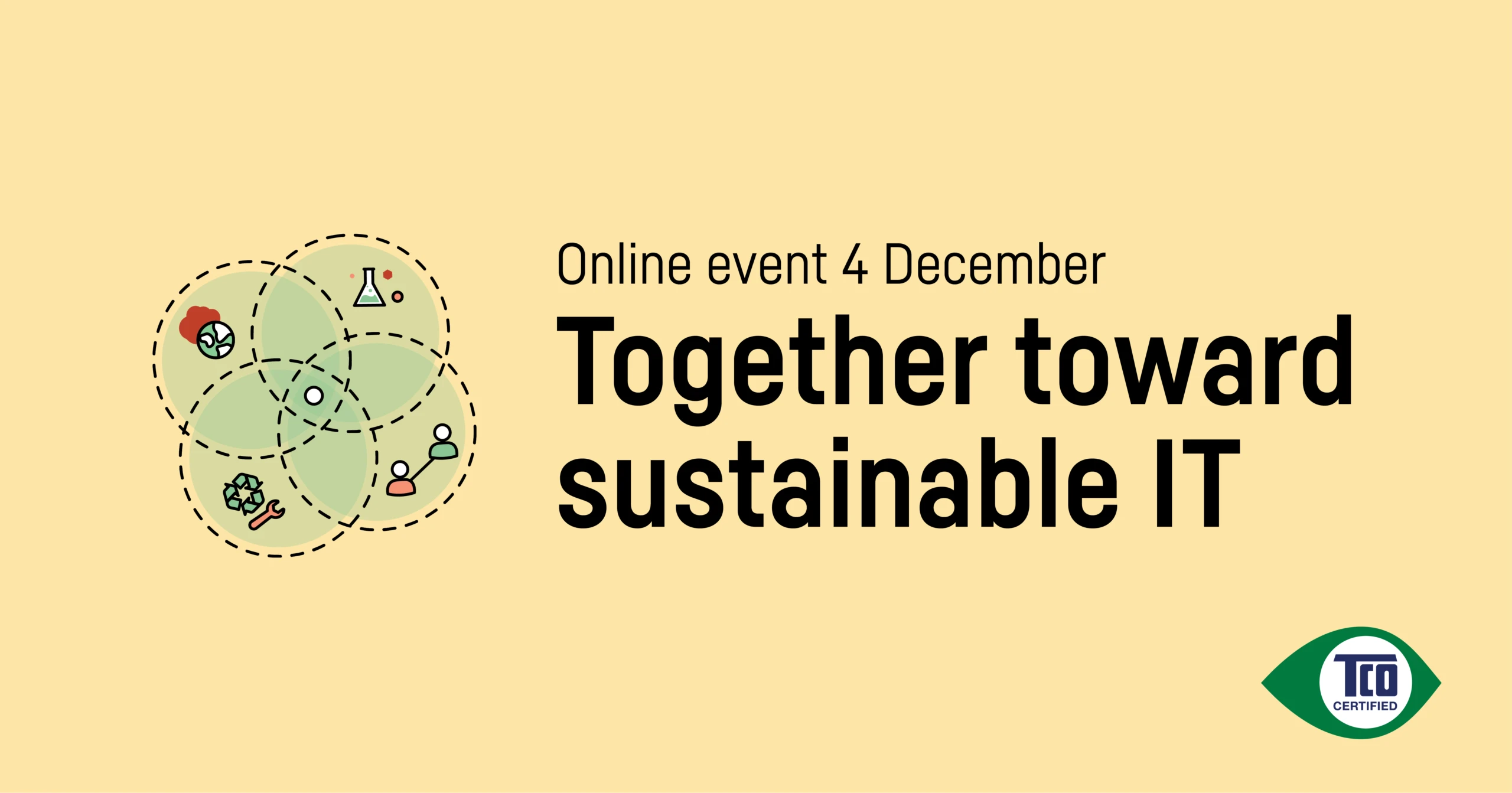For the past 14 years, criteria in TCO Certified have been holding the IT industry accountable for working conditions in the supply chains of certified products. Doing this takes transparency, continuous monitoring, independent verification and guidance that helps IT brands identify and drive improvements.
The main issue when it comes to socially responsible manufacturing is that we have a very complex supply chain, from the mines sourcing the minerals and all the way to the final assembly factory. It can involve a great number of suppliers. These supply chains usually are within countries that do not enforce their labor rights. And here we see the exploitation of workers happening, who need to earn enough money to support their living standard, and therefore agree to the limits on their rights.
It’s the brand owners’ responsibility to support their suppliers, ensure they are following the code of conduct, and protect the well-being of workers. What we’ve seen so far is that the industry will make demands on the supplier but will not be there to support them to implement these changes. So it’s one thing to make demands, but you need to be there to also support and be engaged with your supplier so that they find and implement better practices. Another challenge is that the brand owners have very little leverage over the large supply chain. The supplier may have several other customers that aren’t driving socially responsible manufacturing in the same way as the brand owners we’re focusing on. So this means that there is no incentive for that supplier to change and improve.
TCO Certified adds leverage for faster improvements
When it comes to creating leverage, TCO Certified is a useful tool. We can put together brand owners to increase the pressure on suppliers. Since we can identify which brand owners are using the same supplier, we can also increase that leverage over them to make improvements.
Another tool we’ve developed is TCO Certified Accepted Factory List. With this list, all final assembly factories that manufacture certified products are divided into risk categories. Those that are proactive in their work with sustainability and continuously meet the criteria in TCO Certified are placed in a low-risk category, while factories with persisting sustainability issues receive a higher-risk category. If major issues are not corrected within a set timeframe, the factory is removed from TCO Certified Accepted Factory List, and is no longer allowed to manufacture certified products.
This way of working increases transparency, which is essential for improvement, accountability, collaboration and fair competition. IT product brand owners can view the latest audit findings and corrective action progress, and choose to locate production of their products at a factory that is at the forefront of sustainability. This is groundbreaking: sustainability is now good business for factory owners. More ambitious factories get more business, which is an incentive for factory management to prioritize sustainability issues.
Tools only work if they are used
Many industrial initiatives and programs are starting up, where brands come together to create a collective. But these usually end up as a way of working together on developing tools to help the industry. There’s actually no real driver here to follow up and create improvements, but only to use the tools, which is a very good start. But if you don’t have a consistent way of driving implementation to make sure these tools work, then these kinds of industry programs can fall short of their intention.
Purchasers need to join together
The most important thing you can do as a buyer to affect the supply chain is to work together as a group, because if you’re not in a position to create enough leverage over the supply chain, then you will have less possibility of making a positive impact. With TCO Certified, we make a collective effort to increase the leverage of brand owners on their suppliers. A purchaser that uses TCO Certified in procurement is actually making a step toward that kind of leverage and impact on the supply chain, which is necessary to make improvements.
Stephen talks socially responsible manufacturing
Criteria in TCO Certified create a framework that the IT industry can use to continuously and systematically improve working environments and conditions in the supply chain.

Stephen Fuller leads the development of supply chain and chemical management criteria for TCO Certified. He is the creator of the groundbreaking public accepted substance list for safer chemicals that forces the industry to replace highly toxic substances with independently assessed safer alternatives. Stephen also developed the first social criteria included in an IT product certification, which transformed the scope of TCO Certified from being strictly environmental to also covering supply chain social sustainability.





